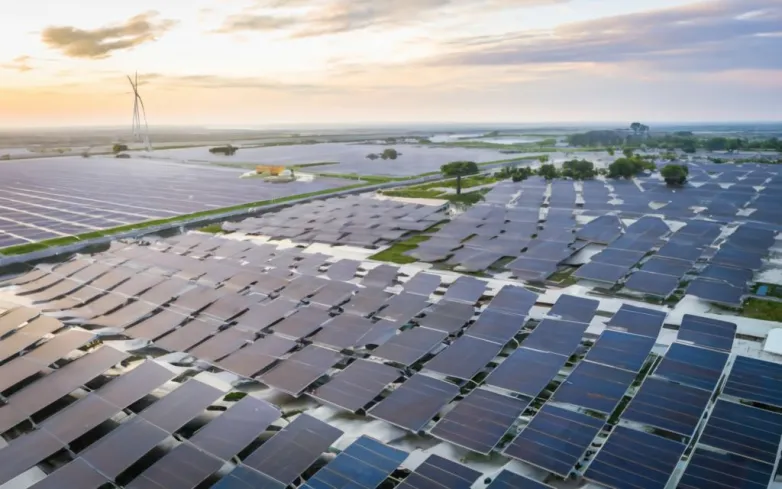Breakthrough: Semi-Transparent Solar Cells Achieve 21.68% Efficiency
- Breakthrough efficiency of 21.68% in semi-transparent perovskite solar cells by Korea Institute of Energy Research. Key step towards carbon neutrality by 2050.

The Photovoltaics Research Department of the Korea Institute of Energy Research has achieved a record-breaking efficiency of 21.68% with semi-transparent perovskite solar cells, making them the most efficient among transparent electrode perovskite solar cells. These cells have potential applications in building windows and tandem solar cells, crucial for achieving carbon neutrality by 2050. The research team identified and solved issues related to the degradation of the hole transport layer, leading to enhanced stability and efficiency of the solar cells.
Through electro-optical analysis and computational science, the researchers discovered that optimizing the oxidation time of the hole transport layer can prevent lithium ions from diffusing into the metal oxide buffer layer, improving stability. The developed semi-transparent perovskite solar cells demonstrated impressive efficiency and stability, retaining over 99% of their initial efficiency after 240 hours of operation. Additionally, the cells were successfully applied as the top cell in bifacial tandem solar cells, achieving high efficiencies under various configurations.
Dr. Ahn SeJin highlighted the significance of the research in addressing degradation processes unique to semi-transparent perovskite solar cells and emphasized the practicality and potential of the developed technologies. The collaboration with industry partners and international research centers further validates the advancements made in achieving ultra-high efficiency and diversifying application areas of next-generation solar cell technology.
What breakthrough efficiency was achieved by Korea Institute of Energy Research in solar cells?
- The Korea Institute of Energy Research achieved a record-breaking efficiency of 21.68% with semi-transparent perovskite solar cells
- These cells are now the most efficient among transparent electrode perovskite solar cells
- The research team identified and solved issues related to the degradation of the hole transport layer, leading to enhanced stability and efficiency of the solar cells
- Optimizing the oxidation time of the hole transport layer prevented lithium ions from diffusing into the metal oxide buffer layer, improving stability
- The semi-transparent perovskite solar cells retained over 99% of their initial efficiency after 240 hours of operation
- The cells were successfully applied as the top cell in bifacial tandem solar cells, achieving high efficiencies under various configurations
- Dr. Ahn SeJin emphasized the practicality and potential of the developed technologies in addressing unique degradation processes in semi-transparent perovskite solar cells
- Collaboration with industry partners and international research centers further validates the advancements made in achieving ultra-high efficiency and diversifying application areas of next-generation solar cell technology.
Also read

